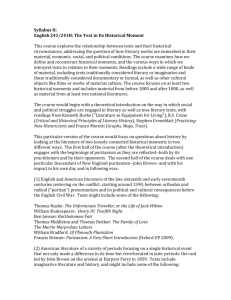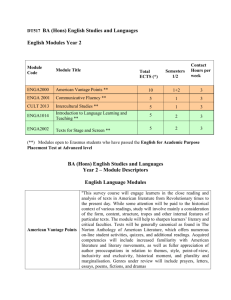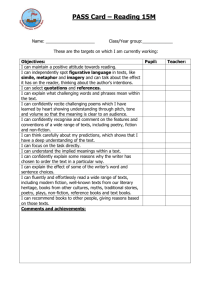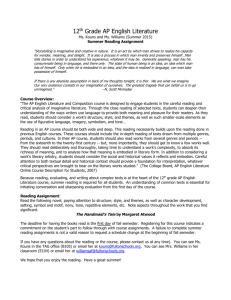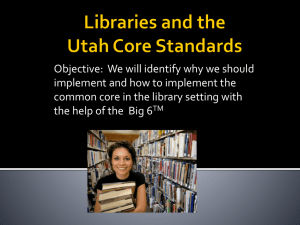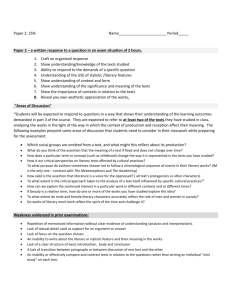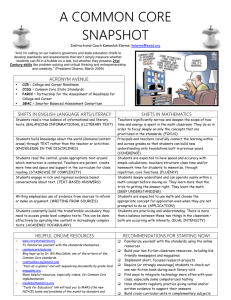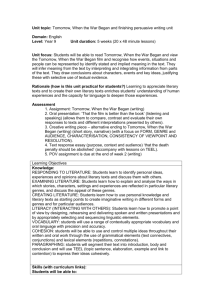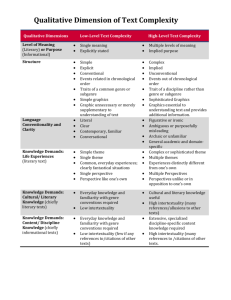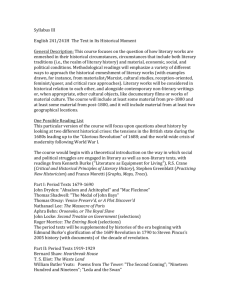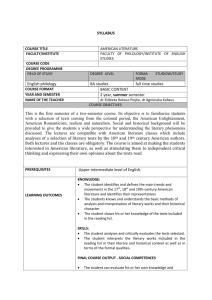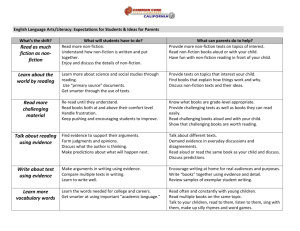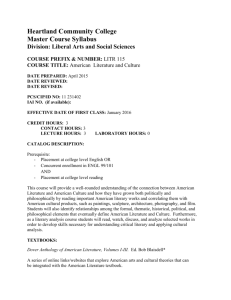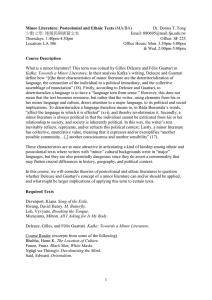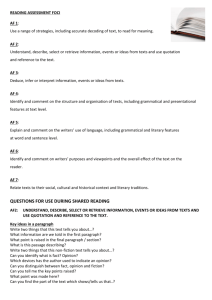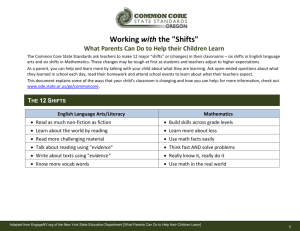CL 486 Special Topics Literature and the Environment
advertisement
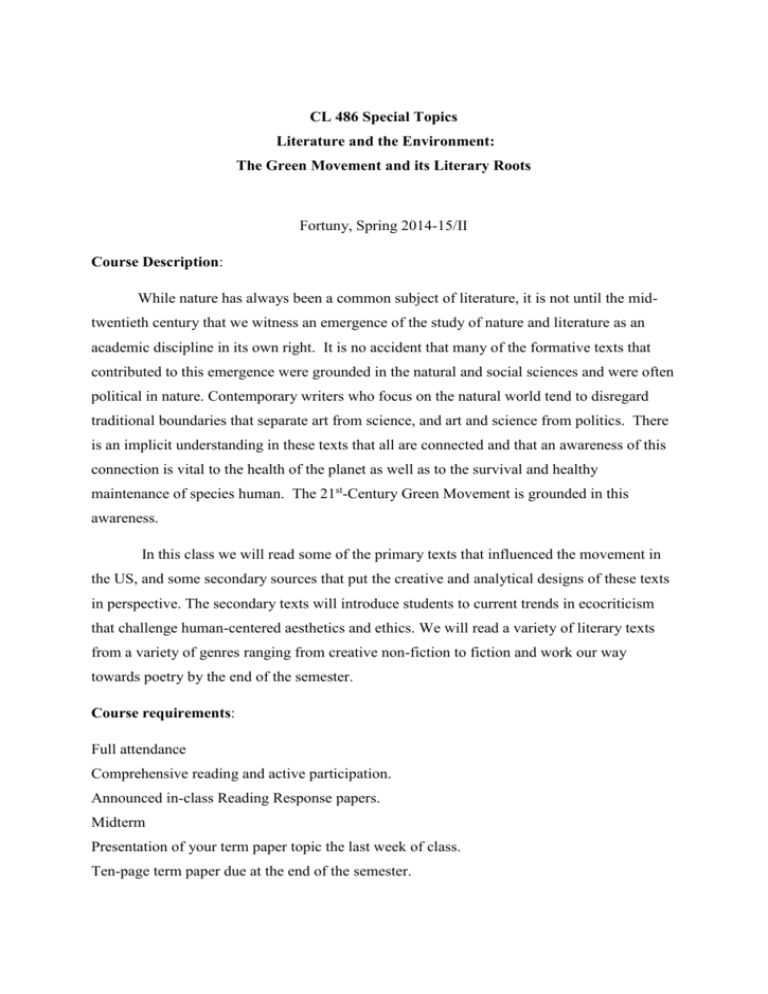
CL 486 Special Topics Literature and the Environment: The Green Movement and its Literary Roots Fortuny, Spring 2014-15/II Course Description: While nature has always been a common subject of literature, it is not until the midtwentieth century that we witness an emergence of the study of nature and literature as an academic discipline in its own right. It is no accident that many of the formative texts that contributed to this emergence were grounded in the natural and social sciences and were often political in nature. Contemporary writers who focus on the natural world tend to disregard traditional boundaries that separate art from science, and art and science from politics. There is an implicit understanding in these texts that all are connected and that an awareness of this connection is vital to the health of the planet as well as to the survival and healthy maintenance of species human. The 21st-Century Green Movement is grounded in this awareness. In this class we will read some of the primary texts that influenced the movement in the US, and some secondary sources that put the creative and analytical designs of these texts in perspective. The secondary texts will introduce students to current trends in ecocriticism that challenge human-centered aesthetics and ethics. We will read a variety of literary texts from a variety of genres ranging from creative non-fiction to fiction and work our way towards poetry by the end of the semester. Course requirements: Full attendance Comprehensive reading and active participation. Announced in-class Reading Response papers. Midterm Presentation of your term paper topic the last week of class. Ten-page term paper due at the end of the semester. Syllabus Week 1: General introduction to studies in Literature and the Environment: Robin Wall Kimmerer, “Learning the Grammar of Animacy.” Week 2: The cross-disciplinary roots of studies in Literature and the Environment: 19th-Century: Henry David Thoreau, from Walden Week 3: The cross-disciplinary roots of studies in Literature and the Environment: 20th-Century: Aldo Leopold, from A Sand County Almanac Week 4: General history of Ecocriticism: Christopher Manes, “Nature and Silence” Harold Fromm, “From Transcendence to Obsolescence” Week 5: Literary Environmentalism: Creative Non-Fiction Edward Abbey, from Desert Solitaire Week 6: Abbey continued Week 7: Midterm Literary Environmentalism: Creative Non-Fiction Annie Dillard, from Pilgrim at Tinker Creek Week 8: Dillard continued Week 9: Louise Westling, “Literature, the Environment and the Question of the Posthuman” Week 10: Environmental Fiction: Virginia Woolf, from Between the Acts Week 11: Ecopoetics: Robert Hass, “American Ecopoetry: An Introduction” Week 12: 20th-Century poetry selections (TBA) Week 13: Presentations CL 486 Special Topics Literature and the Environment: The Green Movement and its Literary Roots Fortuny Spring 2014-15/II Reading Packet I


